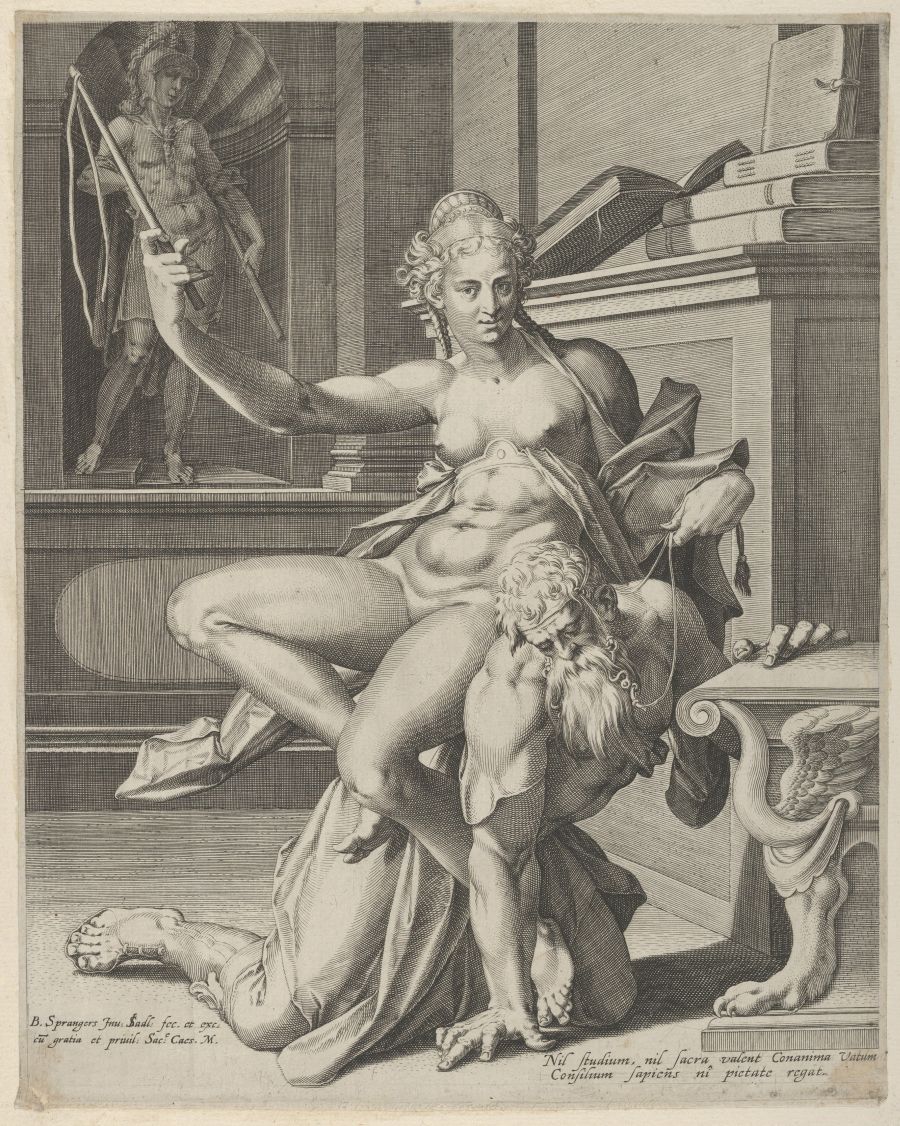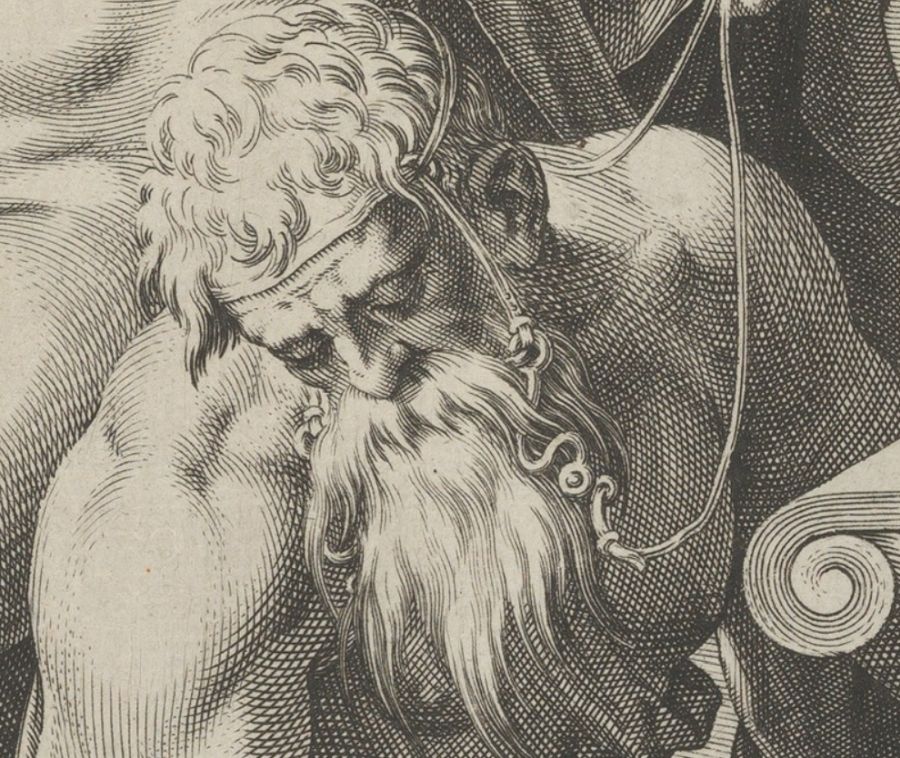Phyllis and Aristotle:
A Medieval Tale of Warning Against Lust

The tale of Phyllis and Aristotle is an early 13th c.story about the
power of lust to turn even the greatest of intellects, a man who
extolled the virtues, into a humiliated, lowly being. The story has
been told with slight variations throughout the centuries, but one of
the most famous recountings is in the French "Le Lai d'Aristote" by
Henri de Valenciennes (a "lay" is a short lyric or poem that is meant
to be sung).
The story's outline as given in the paper "Henri de Valenciennes: The
Lay of Aristote," edited and translated with introduction and notes by
Leslie C. Brook and Glyn S. Burgess, 2011.
The Story of Phyllis
and Aristotle
Alexander, King of Greece and Egypt, has recently conquered Greater
India and taken up residence there. In spite of the military and
political power he wields, he has succumbed to the power of love and
encountered a maiden with whom he has become smitten. He spends so much
time by her side that the members of his court grumble about it behind
his back. Alexander‘s tutor Aristotle hears of their discontent and
attempts to make him alter his behaviour. Aristotle argues that it is
wrong to abandon all one‘s people for the sake of a single, foreign
woman. In reply Alexander asks Aristotle how many women he should love
and goes on to praise the concept of devotion to just one woman and to
blame those who chide him for this, claiming that they lack love within
themselves.
Aristotle‘s response is that it is shameful for him to spend his entire
week in the company of his mistress and not to take his ease with his
own men. He suggests to Alexander that he has gone blind and that his
wits have become deranged, adding that he is acting like any beast in a
meadow and therefore could be put out to pasture. He urges Alexander to
mend his ways, as he is paying too high a price for his behaviour.
Alexander heeds his advice and manages to keep away from his mistress
for some time. But separation merely increases his desire, and even
such feelings as shame and consternation cannot prevent him from
returning to her. She expresses her surprise that a fin‘amant‘ could
refrain from seeing his beloved, so he tells her about the disquiet
felt by his knights and barons because he was not spending more time
with them. Crucially, he blames Aristotle for his temporary desertion
of her.
The maiden responds that she will turn the tables on Aristotle and
bring it about that Alexander will be able to reprimand him for a worse
affair. She tells Alexander to rise early the next day and to position
himself at the window of his tower...
...The next morning, scantily clad and making the best use of her
appearance, in particular her hair, the maiden frolics around the
garden, raising her chemise and singing a love song. All this pleases
the watching king and entices Aristotle away from his books. Aristotle
realises that, in spite of his learning, if she draws near to him he
will be powerless to resist his desire for her, as love has taken hold
of him.
The maiden continues her antics, making a garland of flowers for her
hair and singing another song. Finally, singing a weaving song as she
does so, she approaches Aristotle‘s window, and as she passes near to
him he grabs her by the tunic. The maiden pretends not to know who has
seized her and expresses disingenuous surprise when she discovers that
it is Aristotle. When the latter declares his love for her, she claims
that she will never blame him. She also pretends not to know who has
embroiled her with the king. In order to enhance his attraction as a
potential lover, he offers to put things right for her with Alexander
and begs her to come inside and allow him to satisfy his desire with
her. With the aim of inflicting maximum humiliation on Aristotle, the
maiden announces deceitfully that, before she indulges in any wanton
behaviour with him, he must allow her to put a saddle on him and ride
around the garden on his back, as she has conceived a strong wish for
this. He accepts this willingly, and as she rides on him she sings a
triumphant song in which she claims she is being carried by 'Master
Fool‘.
|

When you're tempted to befoul yourself with porn, think of the above
detail from the woodcut at the top of this page.
|
 Back to Becoming Virtuous:
Temperance Back to Becoming Virtuous:
Temperance
 Back to Being Catholic Back to Being Catholic
 Index Index
|


